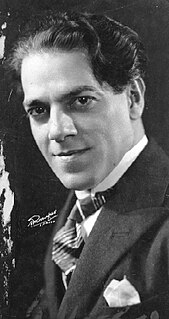
String Quartet No. 1 is the first of seventeen works in the genre by the Brazilian composer Heitor Villa-Lobos, originally written in Nova Friburgo in 1915 and extensively revised in 1946. A performance lasts approximately eighteen minutes.

String Quartet No. 5 is the fifth of seventeen works in the genre by the Brazilian composer Heitor Villa-Lobos, written in 1931. A performance lasts approximately 17 minutes.

String Quartet No. 6 ("Brazilian") is one of seventeen works in the genre by the Brazilian composer Heitor Villa-Lobos, and was written in 1938. A performance lasts approximately 24 minutes.

String Quartet No. 7 is the seventh of seventeen works in the genre by the Brazilian composer Heitor Villa-Lobos, written in 1942. With a performance lasting approximately 37 minutes, it is the longest of Villa-Lobos's string quartets

String Quartet No. 8 is one of seventeen works in the genre by the Brazilian composer Heitor Villa-Lobos, written in 1944. A performance lasts approximately twenty-five minutes.

String Quartet No. 11 is the one of a series of seventeen works in the medium by the Brazilian composer Heitor Villa-Lobos, and was written in 1947. A performance lasts approximately 27 minutes.

String Quartet No. 12 is the part of a series of seventeen works in the genre by the Brazilian composer Heitor Villa-Lobos, and was written in 1950. A performance lasts approximately twenty-two minutes.

Symphony No. 1O Imprevisto is a composition by the Brazilian composer Heitor Villa-Lobos, written in 1916. A performance lasts about twenty-five minutes.

Symphony No. 2, Ascensão (Ascension) is a composition by the Brazilian composer Heitor Villa-Lobos, written between 1917 and 1944.

Symphony No. 3 is a composition by the Brazilian composer Heitor Villa-Lobos, written in 1919. A performance lasts about 35 minutes.

Symphony No. 4, "A Vitória" (Victory) is a composition by the Brazilian composer Heitor Villa-Lobos, written in 1919. A recording conducted by the composer lasts just over thirty minutes.

Symphony No. 5, A Paz (Peace) is a composition by the Brazilian composer Heitor Villa-Lobos, written in 1920. The score has been lost.

Symphony No. 6Sobre a linha das montanhas do Brasil is a composition by the Brazilian composer Heitor Villa-Lobos, written in 1944. It lasts about twenty-five minutes in performance.

Symphony No. 7, Odisséia da paz is a composition by the Brazilian composer Heitor Villa-Lobos, written in 1945. A performance lasts about 30 minutes.

Symphony No. 9 is a composition by the Brazilian composer Heitor Villa-Lobos, written in 1952. A performance lasts about twenty minutes.

Symphony No. 10, Sumé pater patrium: Sinfonia ameríndia com coros (Oratorio) is a composition by the Brazilian composer Heitor Villa-Lobos, written in 1952–53. The broadcast performance of the world-premiere performance under the composer's direction lasts just over 67 minutes.

Symphony No. 11 is a composition by the Brazilian composer Heitor Villa-Lobos, written in 1955. A performance lasts about twenty-five minutes.

Symphony No. 12 is a composition by the Brazilian composer Heitor Villa-Lobos, written in 1957. A performance lasts about twenty-five minutes.

Piano Concerto No. 1, W453, is a composition for piano and orchestra by the Brazilian composer Heitor Villa-Lobos, written in 1945. A performance lasts about 38 minutes.

The Piano Concerto No. 5, W 521, is a piano concerto by the Brazilian composer Heitor Villa-Lobos, written in 1954. One performance recorded under the composer's baton lasts 18 minutes, 48 seconds.



